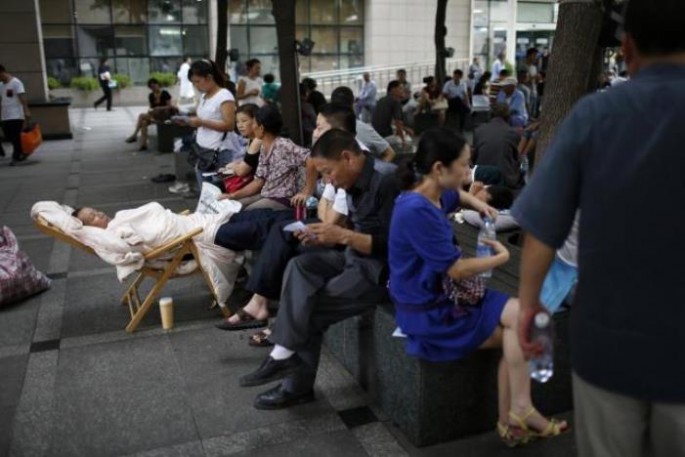The central government, through the National Development and Reform Commission (NDRC), has pledged to increase its investment in major facilities in industry and public service, following reports of lower growth in fixed-asset investments last year, China Daily reported.
According to the report, it has been China's main method to invest in public programs to keep its GDP growth. Last year, its investment in fixed assets, in year-on-year terms, reached 55.1 trillion yuan (nearly $8.5 trillion), showing a growth of only 10 percent, down from a growth of 15.7 percent in 2014 and 20.6 percent in 2012.
In the manufacturing sector, fixed-asset investment increased by only 8 percent last year, the report said.
Since Feb. 2014, the central government has injected 5 trillion yuan into selected programs for industrial and public service development to prevent the rapid decline from upsetting the whole economy.
Zhao Chenxin, the NDRC spokesman, said on Wednesday, Feb. 17, that in January alone the government has made a new commitment of 54.1 billion yuan to such programs.
"The investment projects that the central government approved are mainly designed to improve people's livelihood," Zhao said, adding that it includes expanding the power supply and building more waterworks.
The central government's investment programs cover 11 areas, in which it had already spent around 1.56 trillion yuan for the development of information and energy networks while 1.2 trillion yuan has been allocated on transportation systems.
The other areas include clean energy, environmental protection, energy and mineral resources, health and retirement care services, logistics, urban rails, technology industries, and projects that will boost the core competitiveness in the manufacturing industry, Zhao said.
Economists said that China would need investments in projects with strategic importance, called "appropriate stimulus," despite the economy's intended transition and an inevitable slowdown, to enable the country to maintain its growth momentum and meet demands in the future.
Zhou Dadi, former director of the NDRC's Energy Research Institute, however, said that such investment may not see a major increase in overall terms, "because there are industries asked by the central government to divest some of their existing capacity and to reduce their workforce."
Zhou added that increasing investment in steel and coal industries is not needed at this time.
Liu Yuanchun, associate dean of the School of Economics of Renmin University of China, said that China cannot afford to completely stop financing fixed-asset investment because the economy will benefit from such investment in the long run.
The growth rate in fixed-asset investment was already too slow last year, noted He Zhicheng, chief economist at Agricultural Bank of China.
"It would be dangerous to let it slide below 10 percent," He remarked.



























